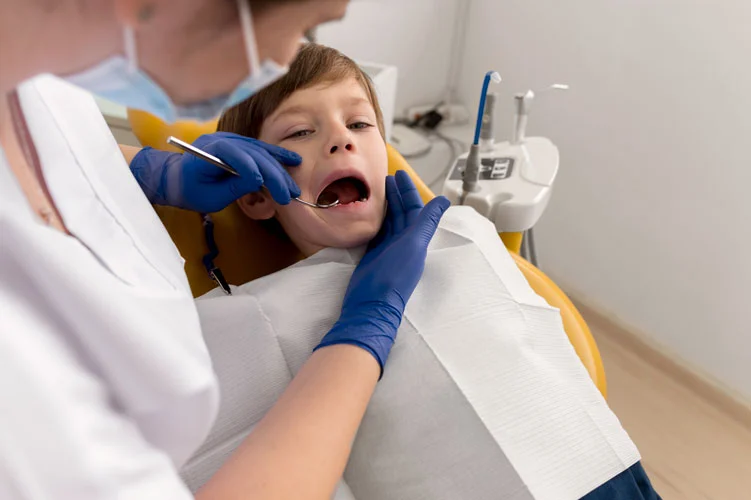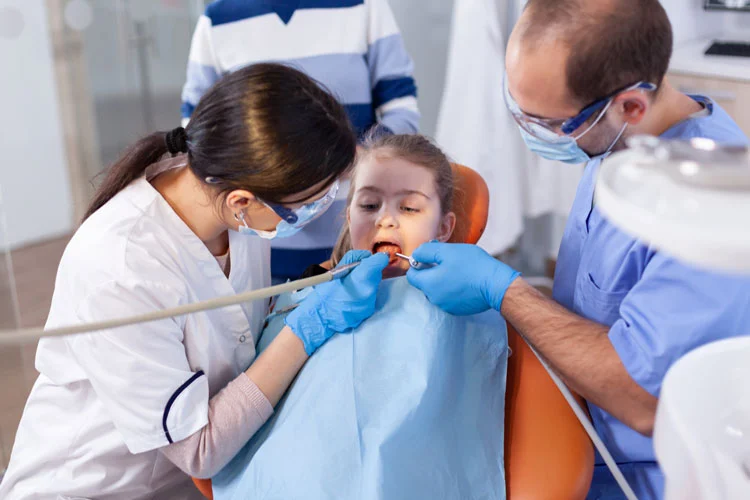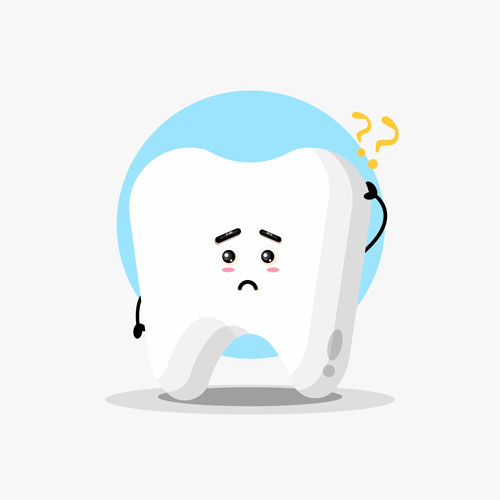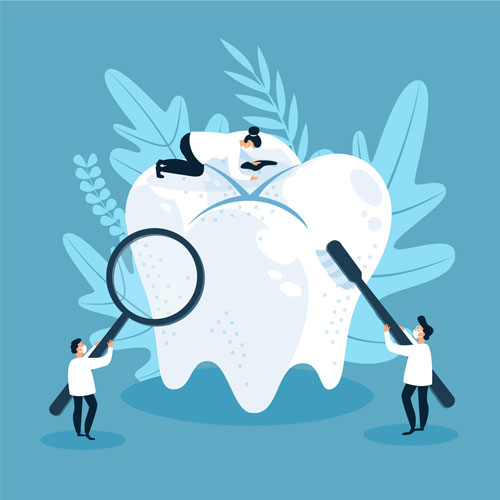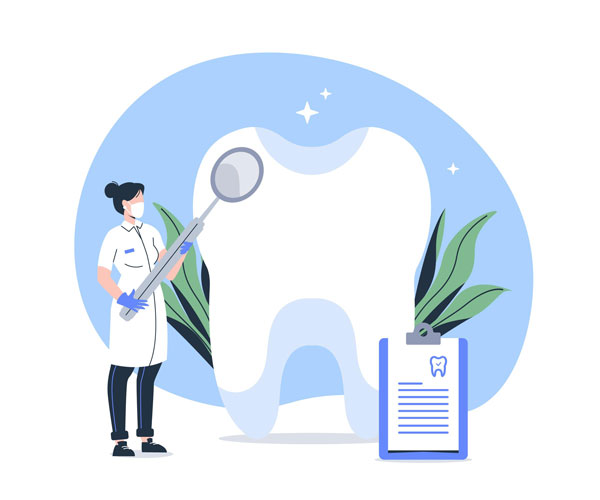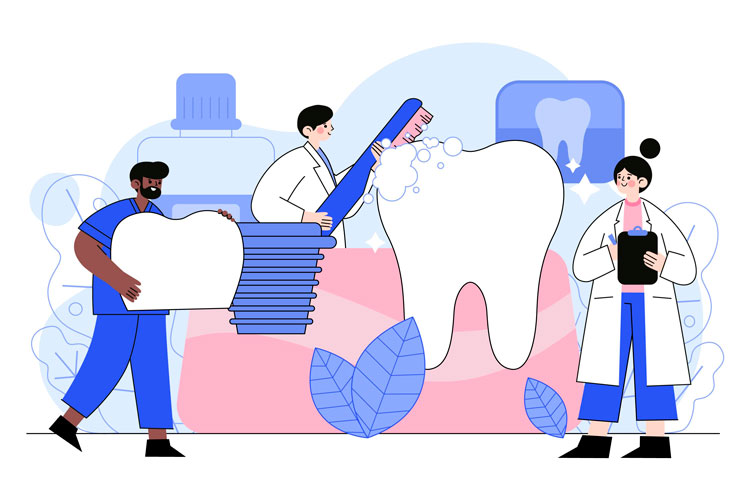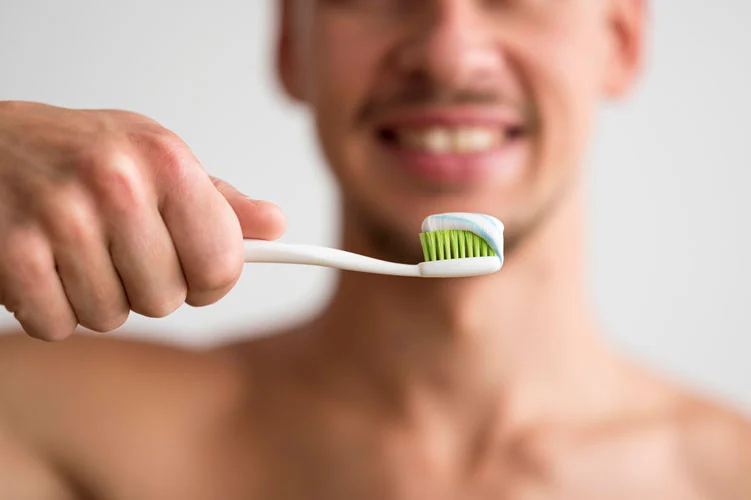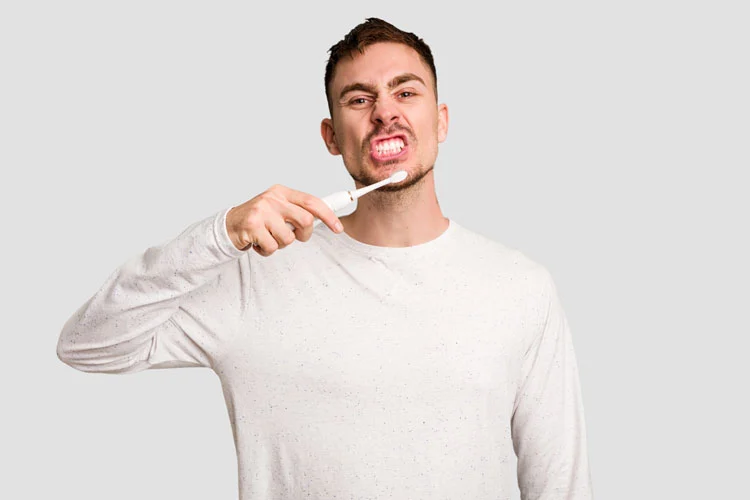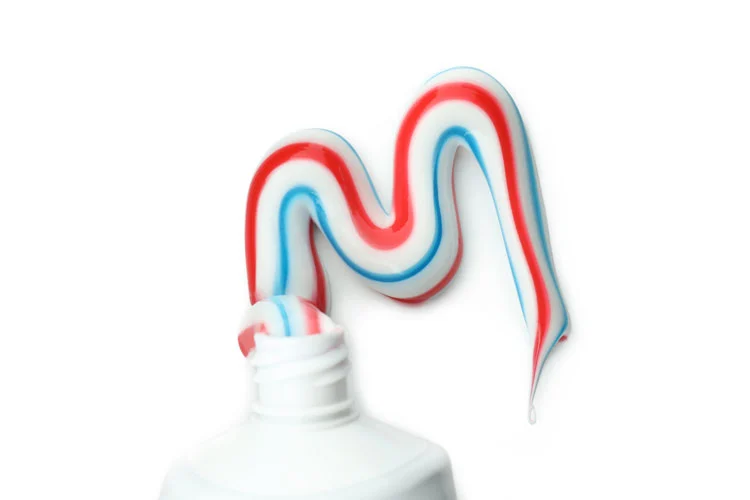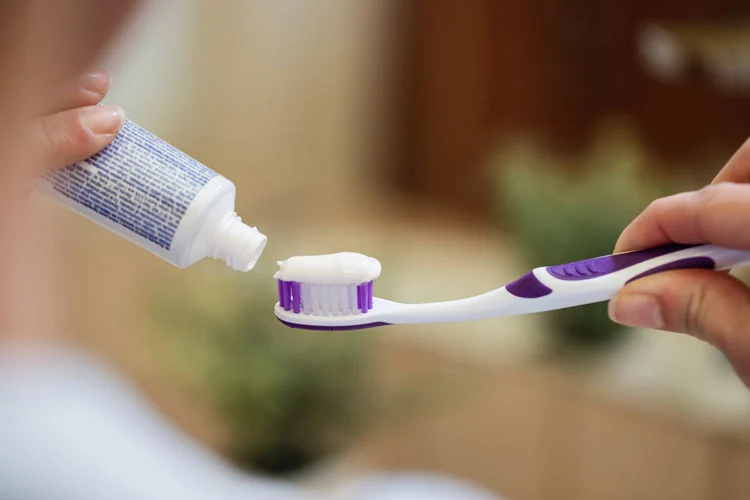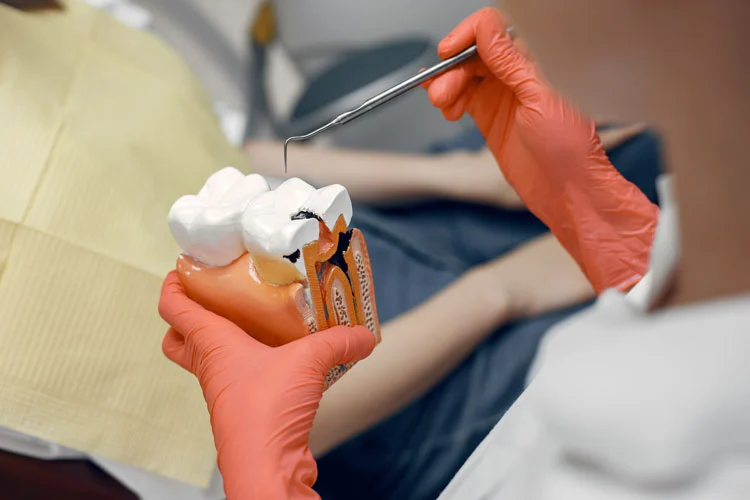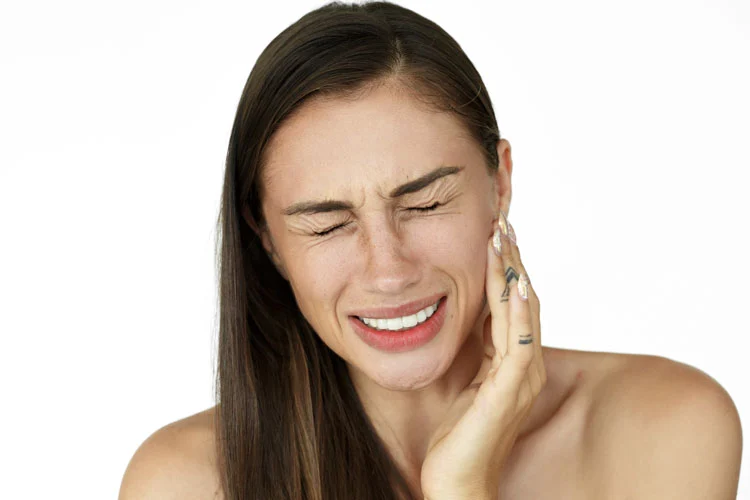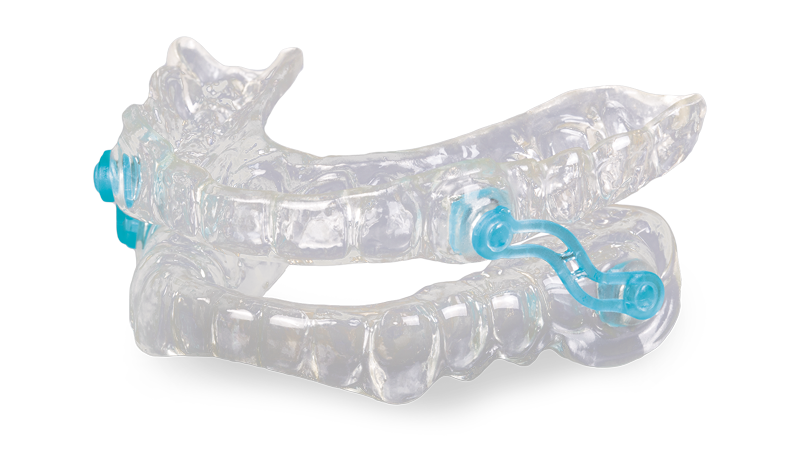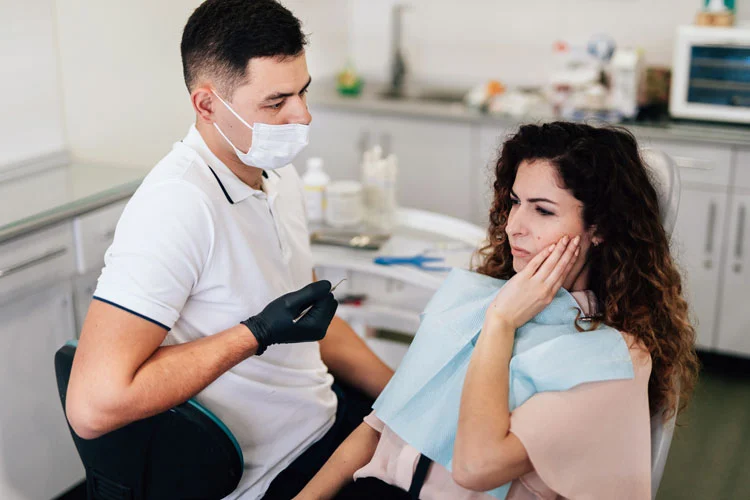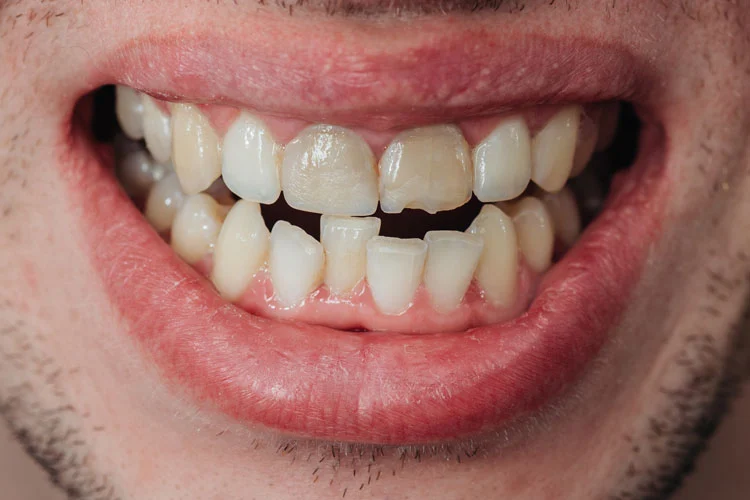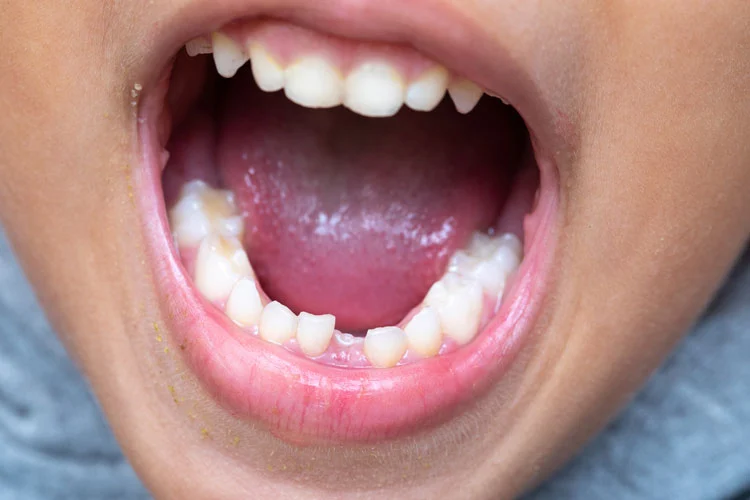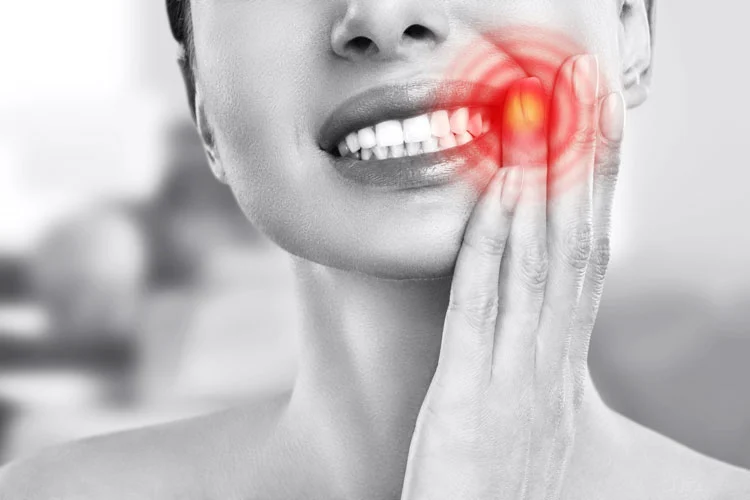Oral Health Tips for Busy Families
Maintaining good oral health is essential for overall well-being. However, in the hustle and bustle of modern life, busy families often find it challenging to prioritize oral hygiene. With work, school, extracurricular activities, and countless other responsibilities, dental care can sometimes take a backseat. But fear not, for there are simple and effective ways to ensure your family’s smiles remain healthy and bright.
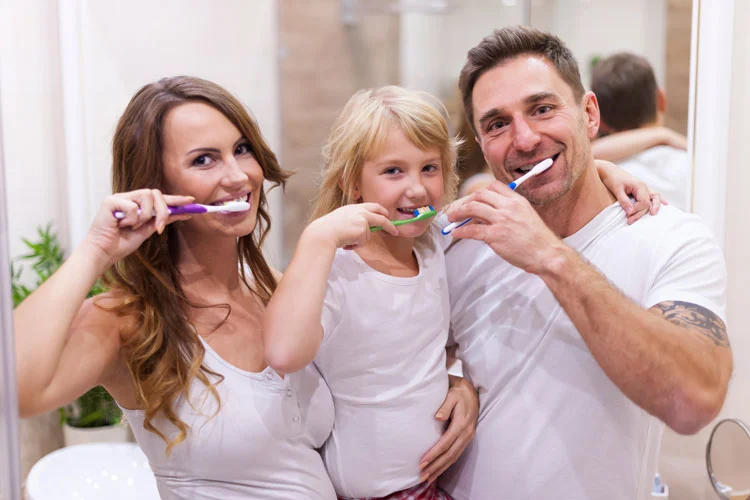
In this blog, we’ll share practical oral health tips for busy families.
Stick to a Routine
The key to successful oral health maintenance is consistency. Establishing a daily routine can help ensure that everyone in your family remembers to brush and floss regularly. Make it a family affair by setting a specific time each morning and evening to practice good oral hygiene. This routine will not only promote healthy teeth but also teach your children the importance of maintaining their oral hygiene.
Choose the Right Tools
Selecting the right toothbrush and toothpaste for your family is crucial. For young children, opt for soft-bristle toothbrushes with small heads, specially designed for their little mouths. Use fluoride toothpaste, as it helps strengthen tooth enamel and prevents cavities. Adults and older children can use electric toothbrushes, which are highly effective at removing plaque.
Teach Proper Technique
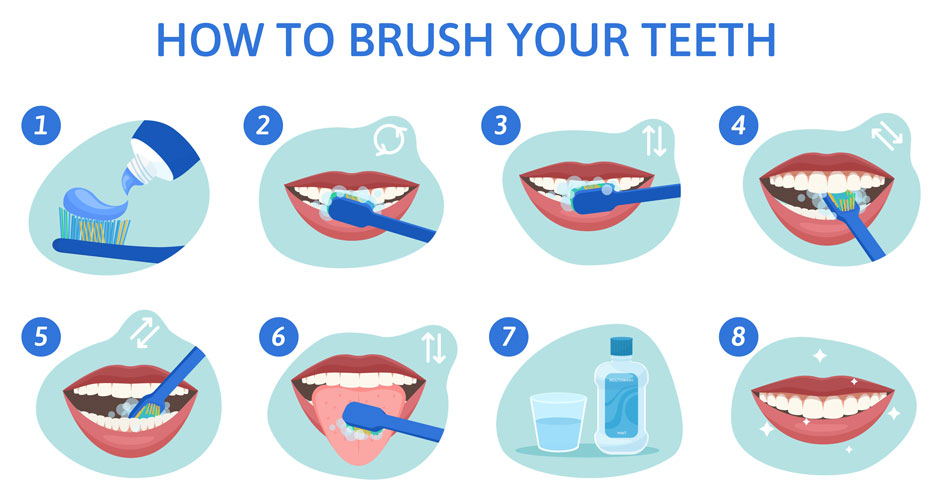
Proper brushing and flossing techniques are essential for effective oral hygiene. Teach your children how to brush for at least two minutes, covering all surfaces of their teeth. Please encourage them to brush their tongues gently to remove bacteria that can cause bad breath. For flossing, demonstrate the correct method and supervise your kids until they can do it on their own, as poor flossing habits leading to inadequate plaque removal can result in gum disease and cavities.
Teaching children foundational, effective oral hygiene habits early can lead to a lifelong, healthy smile.
Stock Healthy Snacks
Busy families often rely on convenient snacks, which can lead to poor oral health if sugary or acidic. Try to stock up on healthier options like fruits, vegetables, yogurt, and cheese. These foods not only nourish the body but also help maintain a balanced oral environment. If sugary drinks or snacks are a must, try to limit them and encourage water intake afterward to rinse away sugar residue.
Stay Hydrated
Drinking water is essential for good oral health. Water helps wash away food particles, bacteria, and acids that can lead to tooth decay. Encourage your family to drink water throughout the day, and make it a habit to rinse your mouth after meals when brushing isn’t possible.
Regular Dental Checkups
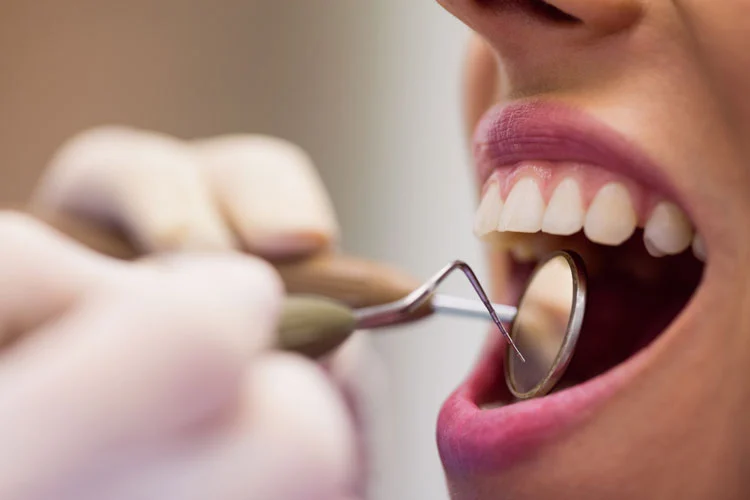
Despite busy schedules, prioritize regular dental checkups for the entire family. Dental visits should occur at least twice a year to catch and address any potential issues early and ensure they’re receiving adequate dental care day to day. Consider scheduling appointments well in advance to ensure you don’t forget in the midst of your busy lives.
Set a Positive Example
Children often mimic their parents’ behavior. Be a role model for your family by demonstrating good oral hygiene habits. When your kids see you taking care of your teeth, they are more likely to follow suit. Brush and floss together as a family to make it a fun and bonding experience.
Maintain Good Oral Health with Time Effective Habits
Maintaining oral health in a busy family can be challenging, but these healthy habits are essential for overall well-being. By establishing a routine, using the right tools, teaching proper techniques, and making small but impactful changes to your family’s diet and habits, you can ensure that everyone in your household enjoys healthy and beautiful smiles.
Dr. Dalesandro and Associates
Are you in search of top-notch dental care in Tucson? Look no further than Dr. Dalesandro & Associates. Our highly skilled team is dedicated to addressing all your dental needs, whether routine check-ups, emergency treatments, or preventive care.
Our exceptional team consists of compassionate Dental Hygienists and Dental Assistants who not only excel in their profession but also extend a warm welcome to patients of all age groups, from the youngest members of your family to adults.
Whether you require preventive treatments like regular cleanings and check-ups or more extensive procedures such as cavity fillings or immediate assistance for dental emergencies, rest assured, we’ve got you covered.
At our Tucson dental practice, your comfort and confidence in your smile are our top priorities. Our unwavering commitment to cleanliness and hygiene ensures a safe and inviting environment for your dental appointments.
Don’t wait any longer to take the first step toward optimal oral health. The caring team at Dr. Dalesandro’s is ready to assist you.
For comprehensive resources and information, explore our website. Your journey to a healthier smile begins with us!

